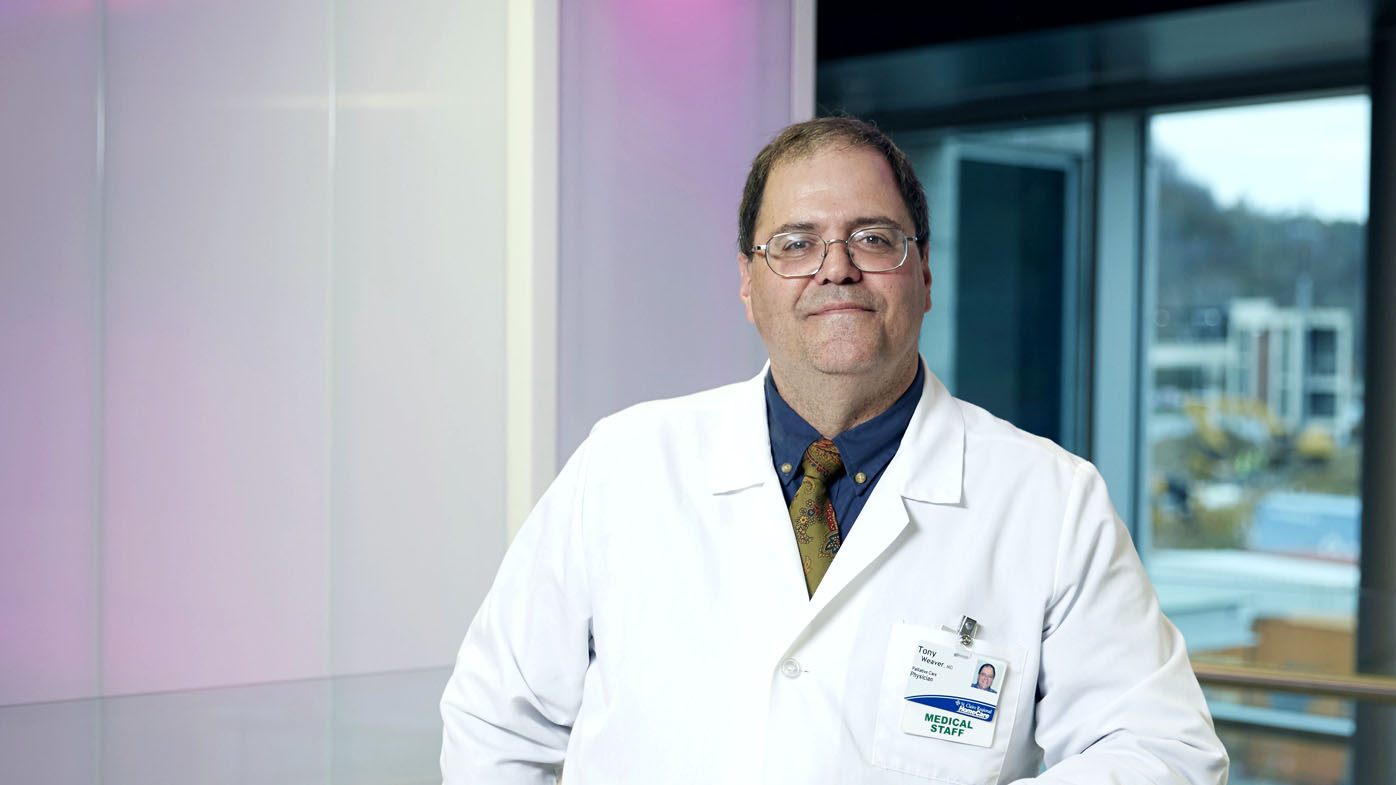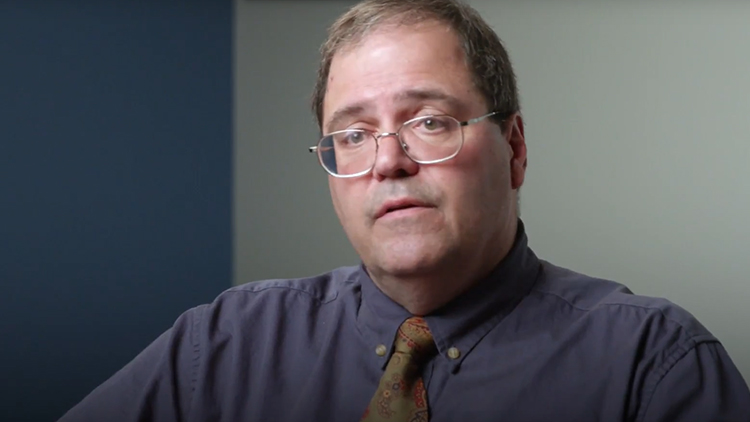Meet Dr. Tony Weaver
Most of Weaver’s patients are like Billie—grappling with the advanced stages of lung cancer, but not yet terminal. He finds ways to make them comfortable, usually taking them off more medications than he prescribes. No sense giving cholesterol meds to a patient dying of cancer. He prescribes ice cream instead. It keeps them eating.
Weaver, a Kentucky native, is a member of the healthcare team that advised the creators of Kentucky LEADS, a collaborative funded in part through a grant by the Bristol Myers Squibb Foundation, whose goal is to reduce the burden of lung cancer in Kentucky.
A passionate advocate for lung cancer care and prevention, Weaver grew up near Bowling Green, where almost everyone in his family smoked.
“My brother and I used to play ‘Run through the smoke.’ We’d flap our arms and make swirls in my father’s pipe smoke.”
After going away to medical school, he came to Morehead in 1986 to treat the cancer killing his own friends, colleagues and relatives. Two decades had passed since the U.S. Surgeon General’s report linked smoking with lung cancer, but Kentucky’s tobacco culture had hardly changed.
“When I first came here, my 2-year-old daughter could legally buy cigarettes,” he says. There was hardly any tax on cigarettes. No indoor smoking ban. People smoked in restaurants, in high school teachers’ lounges, even in hospital nursery wards.
Three decades later, he’s still trying to change minds, as a doctor, an advocate and a professor. Once a week, he hosts a public radio show about health issues. He teaches future doctors at a satellite campus of the University of Kentucky’s College of Medicine.

